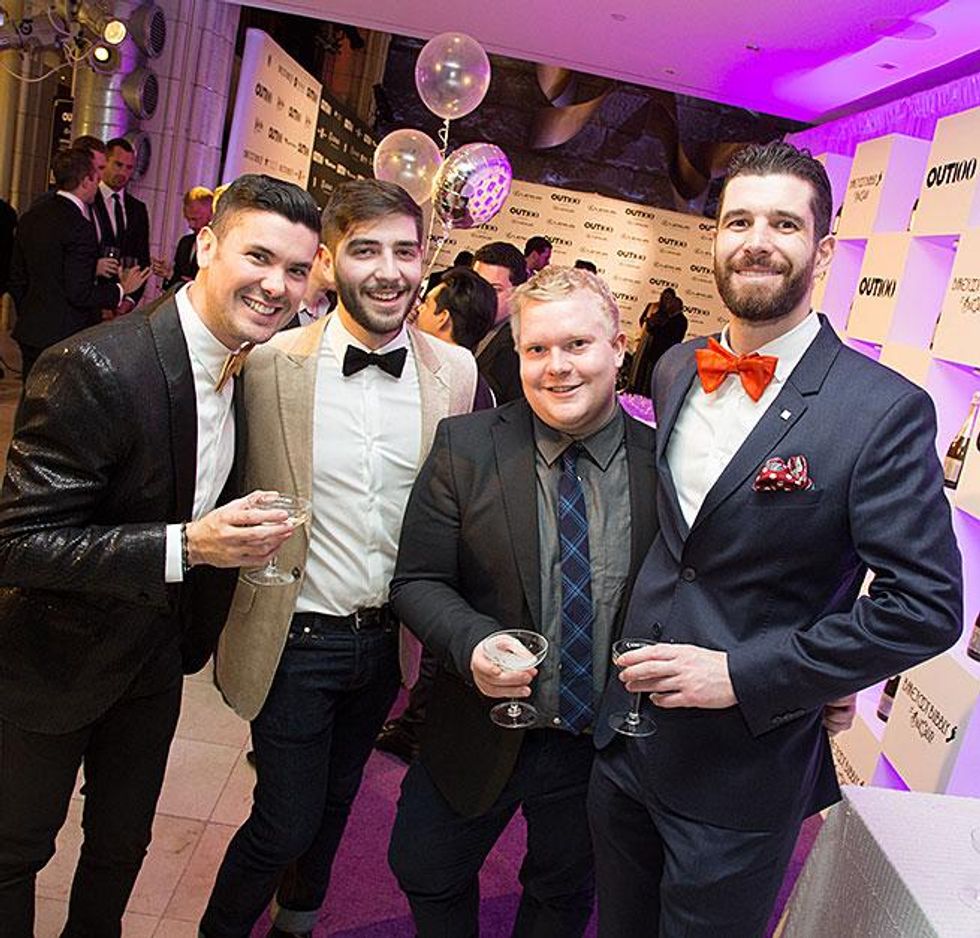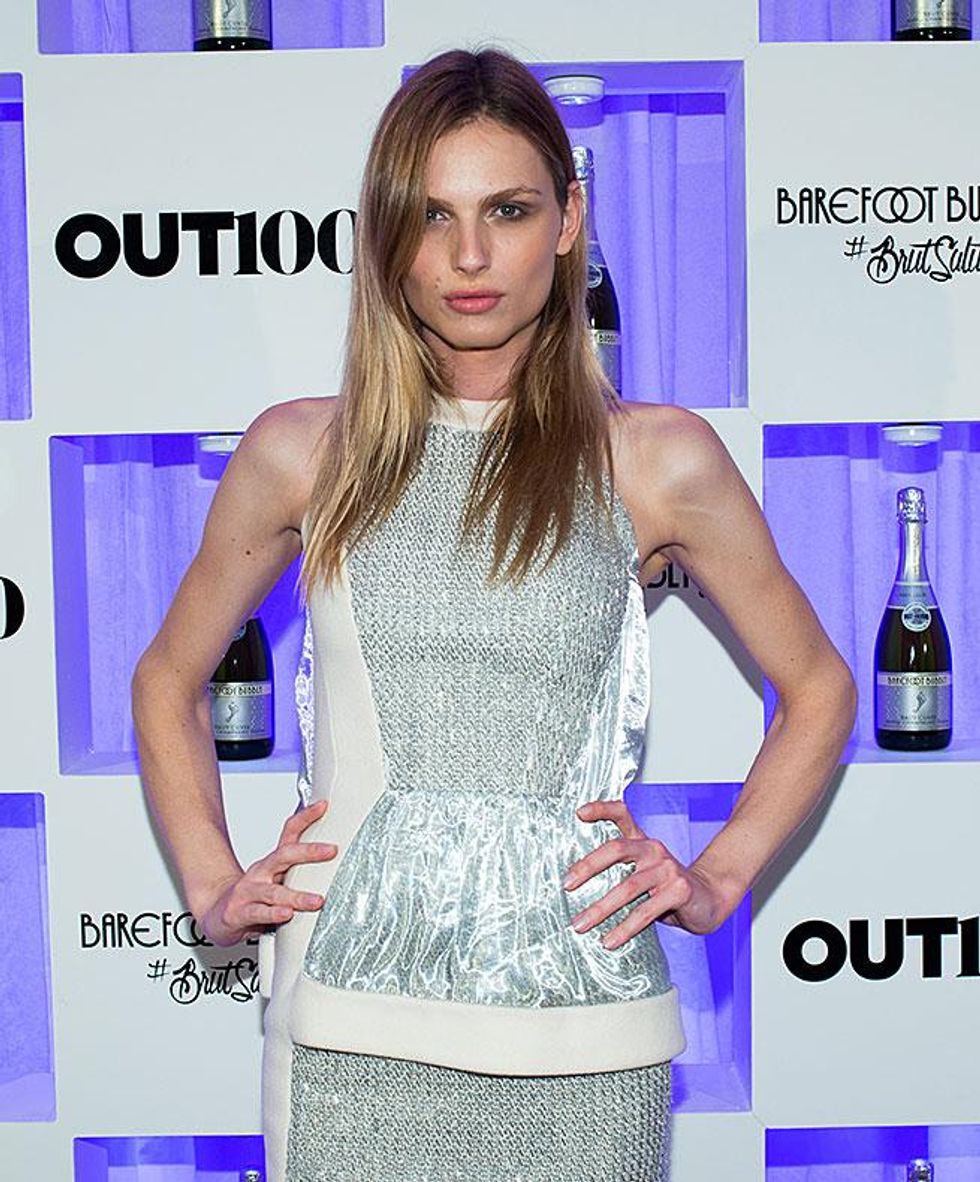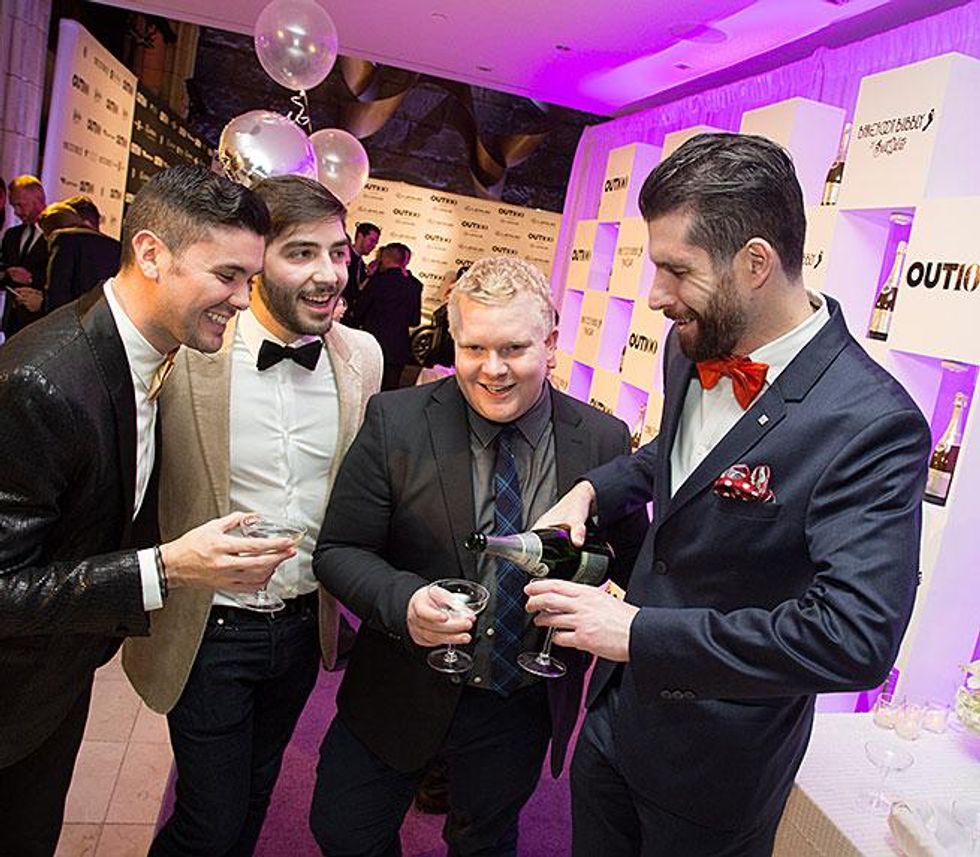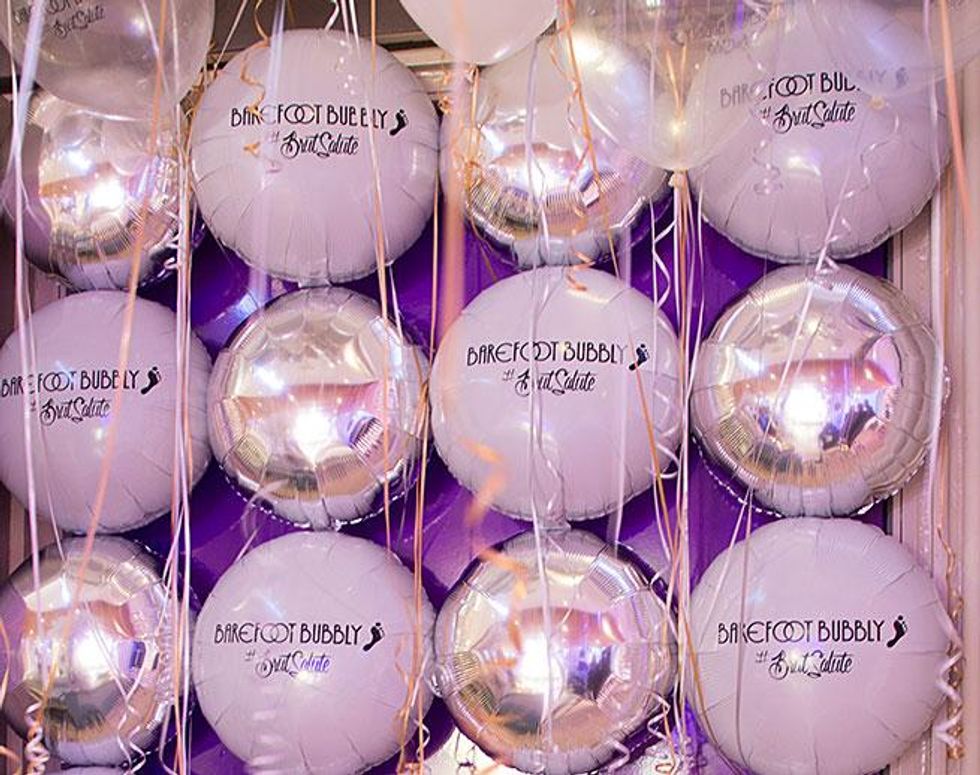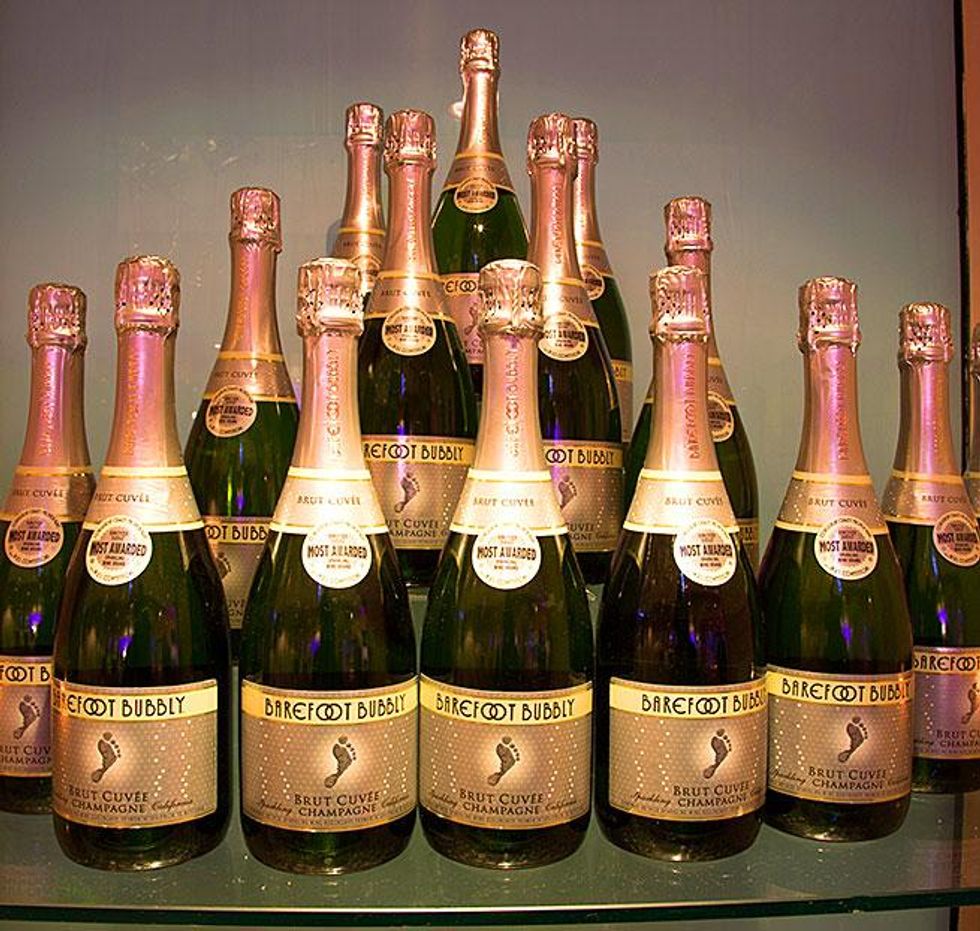
Out100: Warriors & Legends
Edith Windsor, Gilbert Baker, Evan Wolfson, Andrew Sullivan, Larry Kramer
Photography by Ryan Pfluger in Washington Square Park, new york, on September 21, 2015. Men's Groomer: Dallin James at The Wall Group. Hair and Makeup: Angela DiCarlo.
"We made love all afternoon and went dancing all night -- and that was the beginning," was how Edith Windsor summed up meeting Thea Spyer, her lifelong partner. They married in 2007 in Canada, 42 years after that heady first date, but it was Spyer's death, two years later, that set the stage for a Supreme Court battle as Windsor fought to get back the estate taxes she had to pay because her marriage wasn't recognized by law. The court came down on Windsor's side, striking out Section 3 of the Defense of Marriage Act, which held that marriage "means only a legal union between one man and one woman."
"Flags are about power, about visibility. You can't really design a flag," Gilbert Baker says about the symbolic nature of the rainbow flag, which was acquired by the Museum of Modern Art this year. Baker admits he's seen plenty of "tacky rainbow stuff" since he first created that flag in San Francisco in 1978, but he was especially touched that the White House was lit in rainbow colors after the Supreme Court ruling this June. "I just burst into tears that day," he says.
As a third-year student at Harvard Law School in 1983, Evan Wolfson wrote a thesis outlining the case for same-sex marriage. This year, the man widely considered the chief architect of marriage equality was happily out of a job when the Supreme Court agreed that LGBT Americans have a constitutional right to get married. His powerful organization, Freedom to Marry, founded in 2003, has has wound down its operations -- mission accomplished -- and Wolfson is now turning his skills toward others battles, such as immigration and workplace protections.
Shortly after he published his 1995 book, Virtually Normal, in which he advocated same-sex marriage, journalist Andrew Sullivan found himself debating the issue on Crossfire. "This is the loopiest idea ever to come down the pike," sniffed Gary Bauer, the then-president of the Family Research Council. "Why are we even discussing it?" In a June 26 post for his pioneering blog, The Daily Dish, Sullivan recounted this experience as one of many "isolating days" along the long road to the Supreme Court ruling on Obergefell v. Hodges. Sullivan was in Provincetown when the news broke, enjoying a blogging-free summer after shuttering his site to focus on book writing (his June 26 post was a relapse). "It felt like my body and soul were absorbing some massive sonic wave," he says of the historic day. So now that his "loopy" idea has become the law, what next? "Ending HIV in a generation through PrEP and viral suppression," he says. "It can be done!"
The 800-page novel, The American People: Volume 1, which Larry Kramer worked on for nearly 40 years, is not an easy read. He calls it his "Proust," and in it, he's queered most of the country's history, making presidents like Washington, Lincoln, Jackson, and Nixon gay. It's fiction and a form of activism. As he explained to author Andrew Holleran in an interview in The Advocate earlier this year: "Successful activism is about being angry and loud enough to be heard. Choose your targets, and go after them in any way you think you can.... Anger, passion, and volume are your weapons. We all have these within us."







































